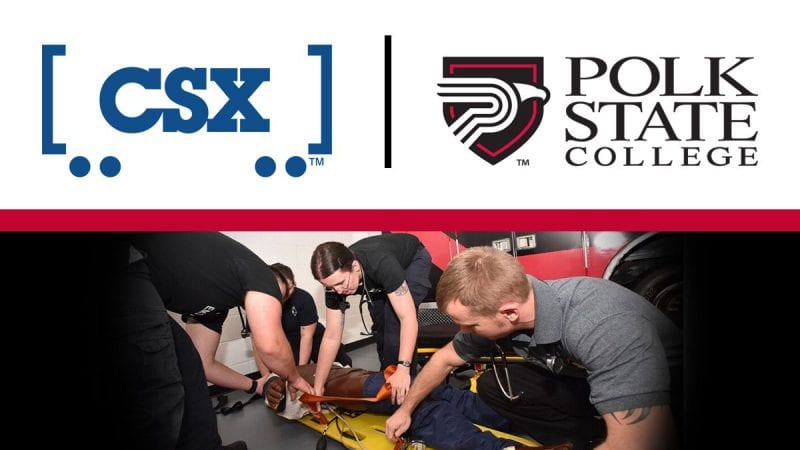CSX Grant Gives Students Lifelike Trauma Care Training

At Polk State College, students and first responders receive lifelike trauma care training, which is being enhanced thanks to a recent grant from CSX.
CSX awarded the Polk State College Foundation with $4,485 to purchase Terry Trauma manikins for the Emergency Medical Services Program’s First Responder Field-Based Training Project.
The program will train 1,300 current and future paramedics, emergency medical technicians, and emergency medical responders as part of the project. The Adult Trauma and CPR manikins will provide training scenarios designed to give students simulated real-life trauma care experiences.
“The manikins will allow us to offer superior simulation of realistic experiences public safety personnel are exposed to including lacerations, burns, and broken bones,” Polk State Emergency Medical Services Program Director Don Guillette said. “This will allow public safety personnel to provide better patient care in our community.”
CSX awards grants through its Beyond Our Rails program, which strategically focuses on four areas: safety, community, environment, and wellness. Polk County is home to the CSX Central Florida Intermodal Terminal in Winter Haven, the Winston Yard Tower in Lakeland, and several rail lines.
“Polk State is grateful for CSX’s longstanding commitment to the safety of its communities which, through this grant, will help provide valuable training to our students and first responders,” President Angela Garcia Falconetti said.
Training will take place at the Polk State Center for Public Safety and include rescue, extraction, immobilization, and restraint scenarios, as well as three National Association of Emergency Medical Technicians (NAEMT) continuing education courses. The purpose is to improve the quality of trauma care in a broad array of circumstances.
“Polk State’s First Responder Field-Based Training Project illustrates the College’s dedication to providing relevant, cutting-edge workforce training,” Falconetti said. “Our current and future first responders will be well prepared to protect our community through the lifelike experiences they gain in our program.”

